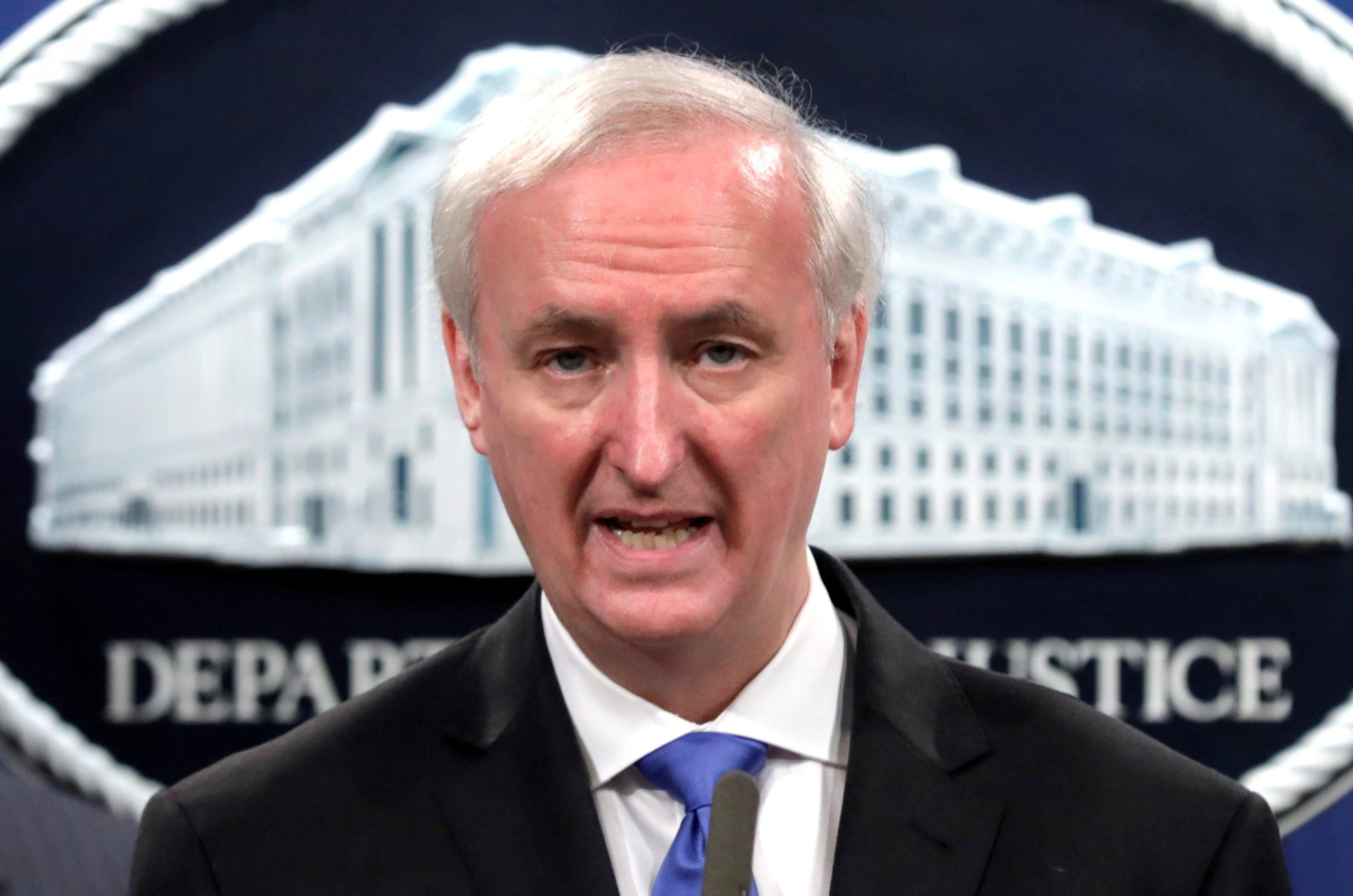Acting U.S. Attorney General Jeffrey Rosen will step down on Wednesday after temporarily heading the Justice Department and serving as the No. 2 official since May 2019, overseeing its Big Tech probe and other wide-ranging investigations.
Rosen, 62, a former deputy transportation secretary under President Donald Trump who was sworn in as deputy attorney general in May 2019, took the reins of the Justice Department after Bill Barr announced he would step down on Dec. 23.
In December, media reports suggested Trump would push Rosen to name special counsels to investigate Trump’s unfounded claims of election fraud or the tax issues of President-elect Joe Biden’s son Hunter.
Rosen told Reuters at the time he would continue “to do things on the merits and to do things on the basis of the law and the facts.”
A Justice Department spokesman told Reuters on Tuesday that Rosen had made no such special counsel appointments during his tenure.
Rosen has kept a low-key profile but issued condemnations of the Jan. 6 Capitol violence by Trump supporters as the Justice Department mounted a massive effort to identify and prosecute people involved.
In a video message on Tuesday, Rosen said the Justice Department is committed “to ensuring a safe and peaceful inauguration.”
“The Justice Department will have no tolerance for anyone who attempts to mar the day with violence,” he said.
Under Rosen, the Justice Department brought a landmark lawsuit against Alphabet Inc’s Google in October, accusing the $1 trillion company of illegally using its market muscle to hobble rivals in the biggest challenge to the power and influence of Big Tech in decades.
Rosen focused on many issues as deputy attorney general, including national security, cybercrime and efforts to locate missing children, crack down on violent crime and pushed Congress to modernize a law central to how the government sets regulatory policy.
Rosen also oversaw the Justice Department’s resolution of criminal and civil investigations with opioid manufacturer Purdue Pharma as well as a number of government probes involving China.
In September, Rosen said the Chinese government “made a deliberate choice to allow its citizens to commit computer intrusions and attacks around the world because these actors will also help” China.
The Justice Department has been cracking down on coronavirus related fraud for nearly a year – including people claiming false cures, price gouging and those seeking to steal government funds from COVID-19 relief approved by Congress – and brought about 80 cases through mid-December.
“Part of it was to get out of the blocks quickly and it make it known we’re on the case,” Rosen said.
Rosen also worked to address how authorities can deal with potentially dangerous drones. “If you can’t guard against misuse then you can’t facilitate the good use,” he said.
(Reporting by David Shepardson; Editing by Robert Birsel)

























 Continue with Google
Continue with Google